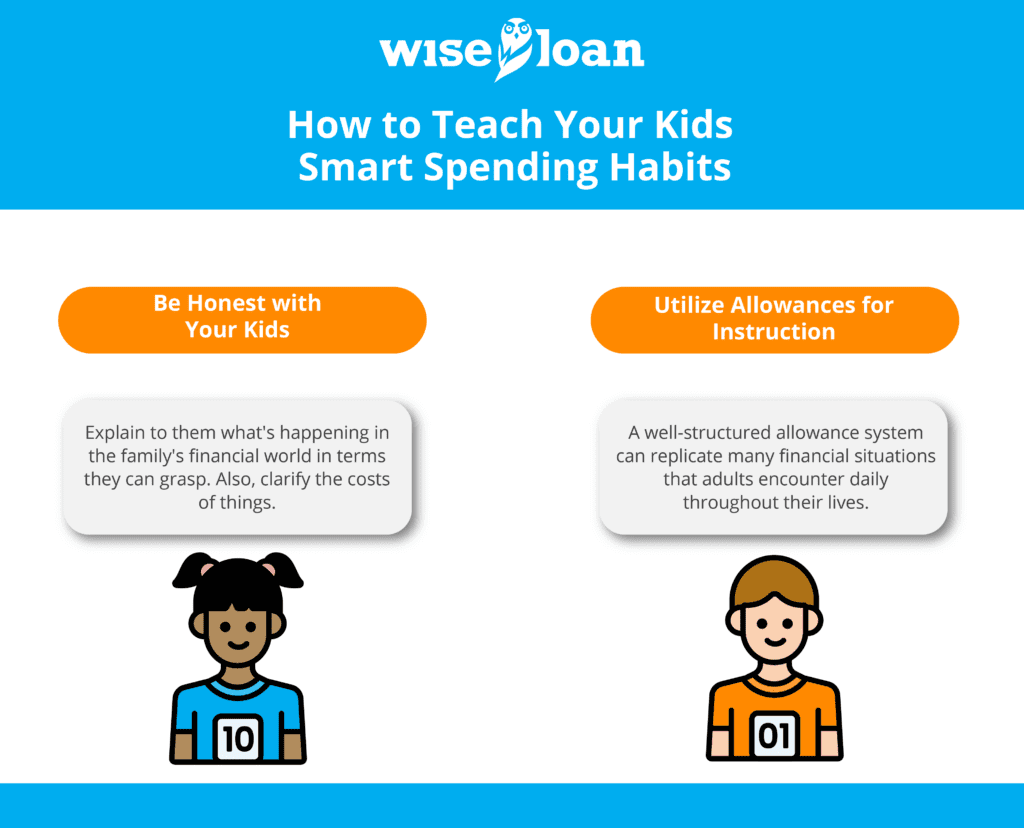“I desire this! I covet that! I long for those!” It doesn’t take many visits to the supermarket or toy store before parents start hearing these declarations from their children as they wander through the aisles. Not only can it be vexing, but it can also be challenging to disappoint them by saying no. If only children understood the value of money from a young age. Since that’s not usually the case, there are methods to help your child develop a better understanding of money’s worth as they mature. Not only will this reduce the incessant chorus of “I want,” but it will also instill positive spending habits for the future when they must make their own financial choices.
Be Honest with Your Kids
Always be forthright with your children. If you’ve been displaying signs of anxiety and stress recently, rest assured they’ve noticed. Rather than allowing them to speculate why Mom and Dad are working so hard or frequently discussing finances, explain to them what’s happening in the family’s financial world in terms they can grasp. Also, clarify the costs of things. Some parents are surprised to discover that their children don’t have a solid grasp of price tags. A practical way to open their eyes is to take them on a “money tour” around the house. For instance, kids may not realize that hot water costs more than cold water or that turning up the thermostat results in higher utility bills. This exercise will teach them how to conserve resources and, in turn, help the family save money.
Utilize Allowances for Instruction
As children grow, allowances become an excellent educational tool for money management. You don’t have to violate child labor laws to find constructive ways for your kids to earn their allowance rather than simply receiving it. A well-structured allowance system can replicate many financial situations that adults encounter daily throughout their lives. From recognizing the need to earn money to learning how to spend, save, and invest their allowance wisely, children can develop a strong financial foundation from a young age.
Continue to educate them during your daily routines. Teaching them the art of prudent shopping is crucial. Family shopping expeditions, whether for groceries or other necessities, are likely to be your children’s initial exposure to spending. They’ll observe you making decisions based on the family’s needs, perhaps witnessing the occasional use of coupons, and learning how payments are made. These outings provide an ideal opportunity to impart valuable financial lessons, emphasizing the importance of product research and price comparison.
When your children reach their teenage years, encourage them to seek employment. An allowance need not be the sole means of earning money for your kids. Your child’s first taste of the world of work-for-pay could be as simple as operating a lemonade stand. Depending on their age, they might engage in yard work for neighbors or offer babysitting services. Earning their own income is one of the most effective ways to start instilling intelligent spending habits. Nobody enjoys parting with their own hard-earned money, especially youngsters. As they come to understand the value of a dollar, they’ll undoubtedly become more prudent in their financial decisions.

This article is presented by Wise Loan. Wise Loan provides installment loans and stands out as the only lender offering cashback rewards for timely loan repayments.
The recommendations contained in this article are designed for informational purposes only. Essential Lending DBA Wise Loan does not guarantee the accuracy of the information provided in this article; is not responsible for any errors, omissions, or misrepresentations; and is not responsible for the consequences of any decisions or actions taken as a result of the information provided above.











